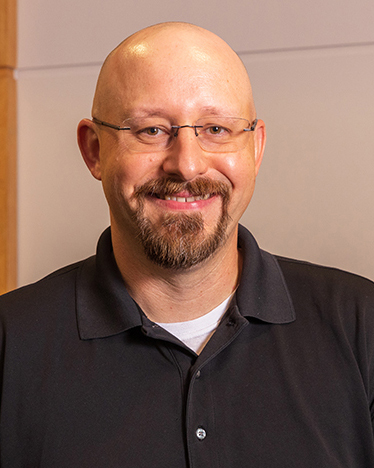Education
PhD, University at Albany
BS, University at Albany
Background
Download Vitae
Interests
Gene Regulation
The expression of a gene to make a protein is arguably the most fundamental process of life, and the regulation of transcription is an integral part of that. Throughout my training and career, I have been interested in the impact of chromatin on transcription. Chromatin is composed of DNA that is wrapped around proteins and packaged into dense, inaccessible structures (like string wrapped tightly around a spool, as opposed to hanging loosely in a clump). For DNA-dependent processes like transcription to occur, chromatin must be modified so that the transcriptional machinery will have access to the DNA. My doctoral and post-doctoral work used the microorganism, Saccharomyces cerevisiae (Baker’s yeast), as a model for studying transcription. Yeast is a eukaryotic organism that shares a great deal of homology with human cellular processes. My focus is on the global repressor of transcription in S. cerevisiae, Tup1. I, and others, have demonstrated that the Tup1 protein can repress transcription using two separable mechanisms: (1) Tup1 can manipulate chromatin to make DNA sequences required for transcription inaccessible; and (2) Tup1 can repress transcription without manipulating chromatin (a chromatin-independent pathway). I also demonstrated that the two repression pathways of Tup1 are not only separable, but involve different portions (i.e., domains) of the Tup1 protein. In yeast, a system can be designed where mutants pertaining to a pathway of interest (i.e., Tup1 chromatin-independent repression) are generated and identified within a larger pool of random mutants and we have done this so that mutants pertaining only to the chromatin-independent repression pathway of Tup1 will be created and isolated. Once the mutated genes have been identified, we can then further characterize them, and the proteins they encode, genetically and biochemically to elucidate their functions.
Innovative Teaching Practices to Foster Deep and Lasting Learning
In the late fall of 2012, I became aware of the “flipped classroom”, or flipped learning. I could see the enormous potential of moving the passive, lecture-based instruction outside the classroom, reserving in-class time for concept review, practice problems, challenge questions, and critical thinking, student-centered activities. In the spring of 2013, I piloted my first flipped class and the results were nothing short of amazing. Students were learning more deeply and comprehensively than ever before, and they were happy. I, then, flipped all of my courses and I’ve never looked back. For more details on how I run my flipped classroom, I invite you to read my guest blog post on the EmergingEdTech blog (http://www.emergingedtech.com/2014/07/my-flipped-classroom-i-will-never-teach-another-way-again/); as I say in this post, I will never teach another way again. My success with the flipped classroom approach has led to many opportunities: I have presented my own style and version of this pedagogical approach at multiple regional and national conferences; I have been invited to address the faculty at UMass – Dartmouth to help them transition to flipped learning; I have trained faculty members in this approach internationally, and I am a faculty member of the Flipped Learning Global Initiative (FLGI), where we advocate for enhanced active, student-centered learning across all of higher education. I remain committed to finding better and more efficient strategies to achieve deep lasting student learning through research in the classroom and by working collaboratively with students.
Courses Taught
BIO-107 General Biology
This is the first semester of the two-semester general biology course intended for biology and other science majors. This course focuses on molecular biology, cells, cellular biochemistry, metabolism and genetics. Students learn the basic concepts of biology and write about them using the appropriate vocabulary. Students also use their knowledge to practice problem solving.
BIO-117 General Biology Lab


